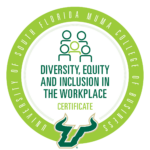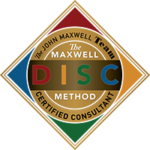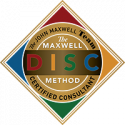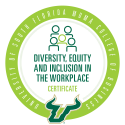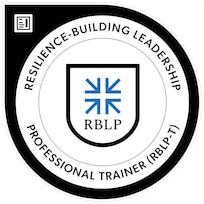Do you ever wonder how people become leaders? How do they acquire the skills and knowledge needed to lead others? In this article, we explore the various paths one can take to become a leader. We look at the various ways in which leaders develop their skills and gain experience, as well as the different types of leadership that are available. We will provide an in-depth examination of how leaders become leaders and the skills and traits they need to excel in their role. Finally, we discuss the importance of having a clear vision of success and a willingness to take calculated risks. Whether you are seeking to become a leader or are merely curious about what it takes, this article will provide you with the insight and knowledge you need to become a leader in your own right.

Definition of Leadership
Leadership is a complex concept that encompasses many different facets. It is a combination of skills, attitude, and experience, with the ability to influence and motivate others being at the core. Leaders can come from all walks of life, with many different levels of experience, but the key traits they share are a strong sense of purpose, positive attitude, and a commitment to their team.
Leaders acquire their skills and knowledge in many ways. Education and training programs are a great way to gain technical knowledge, but the most important skills are acquired through experience. Leaders must be able to think critically, solve problems, and make decisions in order to be successful. They must also have excellent communication skills and the ability to motivate others. Leaders also need to be able to inspire and engage their team to achieve a common goal.
Good leadership is essential for success in any endeavor. It requires a clear vision of success, the ability to take on risk, and the ability to navigate through difficult situations. Ultimately, leaders must be able to inspire their team and build the trust and respect of their followers. They must be able to motivate, challenge and support their team to reach their goals. By developing these skills, leaders can become successful and inspire others to follow their lead.
Becoming a Leader
Becoming a leader can be a challenging and rewarding experience. It requires a combination of skills and knowledge that could be difficult to develop and maintain. One way to become a leader is to gain experience in a variety of roles and responsibilities. This can be done through volunteering or taking on leadership roles at work. It is also important to build strong relationships with colleagues, clients, and other stakeholders. A leader should have a clear vision of success and be willing to take calculated risks in order to achieve it.
Leaders must also develop an understanding of different types of leadership and their associated styles. These may include democratic, transformational, transactional, and autocratic. They must also develop their own leadership style and understand how to adapt it to different situations. Effective leaders must also be able to motivate and inspire their team members. They must be able to provide direction and delegate tasks, while also listening and responding to the needs of their team members.
Leaders need to know the values they wish to cultivate in their team. This includes having a clear sense of integrity, respect, and collaboration. A leader should also be a role model, setting an example of the values they wish to cultivate in their team. Finally, an effective leader must also be willing to take responsibility for their decisions, both good and bad.

Understanding Your Strengths and Weaknesses
Understanding your strengths and weaknesses is an essential part of becoming a leader. To become a successful leader, you must recognize and understand your own strengths, weaknesses, and any limitations you may have. Knowing your strengths and weaknesses can help you create a more balanced leadership style and gain insight into the areas you need to improve.
Leadership is about setting and achieving goals and understanding your strengths and weaknesses can help you set realistic goals and help you to identify ways to reach those goals. Leaders need to be able to work well with others, so understanding what type of person you are, and how others perceive you, is important. It is equally important to understand how you work and interact with others, as this will affect how successful you are when it comes to leading a team.
Identifying your strengths and weaknesses can also help you to identify areas of improvement, so you can become a better leader. Leaders need to be able to take calculated risks and make difficult decisions. Understanding your strengths and weaknesses can help you make informed decisions and help you to better handle difficult situations.
Taking the time to understand your strengths and weaknesses can help you become a more effective leader.
Setting Goals
Setting goals is a critical part of becoming a successful leader. Leaders need to have a clear and well-defined mission and vision for their organization, as well as goals that will drive progress and success. Leaders should be able to identify and articulate the goals they have set for the organization, and they should also be able to effectively communicate those goals to their teams. Leaders should also be able to measure and evaluate progress towards the goals they have set, and adjust and adjust those goals as needed.
Leaders should also understand the importance of having short-term, medium-term, and long-term goals. Short-term goals should be achievable in a relatively short period of time, while medium-term and long-term goals should be more ambitious and take longer to achieve. Leaders should also be able to prioritize their goals and create a plan for achieving them. Leaders are willing to take calculated risks to reach their goals.
Setting goals is key for leaders who want to reach their full potential and help their organizations succeed. Leaders must be able to identify, articulate, and communicate their goals, measure progress, adjust and prioritize goals, and take calculated risks in order to achieve success. Having a clear mission, vision, and plan for success is essential for leaders who want to become successful.

Developing Leadership Skills
Leaders come from many different backgrounds and have taken many different paths to becoming a leader. Some have developed their skills and knowledge through formal education, while others have gained experience through on-the-job training.
No matter how one develops their skills and knowledge, there are certain traits and skills that are essential for effective leadership. This includes having a clear vision of success and the confidence and ability to guide others to it. Leaders must also have excellent communication and interpersonal skills, and be able to create an environment of trust and collaboration. In addition, leaders must have a strong sense of self-awareness and be able to adjust their leadership style as needed to suit the situation.
Leaders also need to be willing to take risks and be open to criticism. This allows them to learn from their mistakes and make course corrections as necessary. Additionally, leaders must be organized and able to delegate tasks and responsibilities to ensure that everyone is working towards the same goal. Effective leaders also understand the importance of fostering creativity and innovation in their teams and encouraging everyone to share their ideas.
In order to become a successful leader, one must possess all of these traits and skills and be willing to continually develop and refine them. Through hard work and dedication, anyone can become a leader and make a positive impact on the world.
Building Relationships
Building relationships is one of the most important aspects of leadership. Good leaders understand that no one person can succeed alone and need to build strong relationships with their teams and other stakeholders in order to be successful. A leader must understand the importance of communication and how to communicate effectively, so that they can build trust and create a team that works together in harmony.
Good leaders also understand the importance of listening and being open to different perspectives. They strive to create an environment that encourages different ideas and allows for open discussion, which fosters creativity and innovative thinking. Leaders must also be willing to seek out feedback from their team and to make changes if necessary.
Lastly, a leader must be willing to take risks and make decisions that might not always be popular. This requires a great deal of courage and self-confidence, but it is essential for a leader to be able to make decisions independently. Good leaders understand the importance of taking calculated risks and are not afraid to make mistakes. By doing so, a leader can not only gain valuable experience, but also build relationships with their team, resulting in a successful and productive team.
Creating a Vision
Creating a vision is an important part of becoming a successful leader. Leaders need to be able to clearly define their goals, objectives, and strategies to achieve them. They must also be able to communicate their vision to their followers in order to inspire and motivate them. An effective leader must also be able to make decisions quickly and act swiftly in order to stay ahead of competitors and achieve the vision that they have set.
An effective leader should also be able to anticipate potential problems and be prepared to handle them. Leaders must remain flexible and open to different approaches in order to take advantage of the best opportunities. Moreover, leaders must be able to properly evaluate and prioritize tasks in order to ensure that the most important tasks are completed on time and according to the highest standards.
Leadership is a complex skill that involves many different components. Creating a vision and setting goals is only the first step in becoming a successful leader. It is also important to develop the skills needed to properly implement the vision and make sound decisions in order to reach those goals. A successful leader must also be able to build and maintain relationships with followers, understand their needs and concerns, and be able to motivate and inspire them.
Learning from Mistakes
Learning from mistakes is an essential part of becoming a leader. Leaders must be able to recognize when they have made mistakes, assess the situation, and then adapt accordingly. This requires self-awareness and the ability to adjust their approach and strategies when faced with a challenge or failure. Additionally, it is important to understand that mistakes are an inevitable part of progress and growth, and rather than seeing them as a setback, leaders should use these experiences to learn and become better leaders in the future.
Learning from mistakes can also be an important tool for developing and strengthening relationships. Leaders must be able to admit when they have made a mistake, apologize, and take responsibility for their actions. This shows humility and respect and allows leaders to create an environment of trust and collaboration with their team. Furthermore, taking responsibility for mistakes encourages team members to learn from each other and develop trust with one another, which is essential for successful team dynamics.
In sum, learning from mistakes is an important skill for any leader to master. It requires self-awareness and the ability to take responsibility for mistakes and use them as a tool for growth. Additionally, learning from mistakes builds trust and respect with team members, which is essential for successful teams and organizations.
Conclusion
In conclusion, it is clear that becoming a leader requires a combination of specific skills and knowledge, experience, and a clear vision of success. Different types of leadership exist, and the most successful leaders possess a unique set of skills that allow them to excel in their roles. Leadership is a complex topic, but this article provided a comprehensive overview of the various paths one can take to become a leader, and the skills and traits that are necessary for success. By understanding the importance of having a clear vision of success and taking calculated risks, any individual can become a leader.
Does your organization have a fully developed Employee Engagement strategy or plan?
Book a consultation with us now! Please do not hesitate to contact us with any questions. We would love to hear from you. Email at info@xcelmil.com.
Click here https://xcelmil.com/xcelmil-coaching-and-consulting-services/ to learn more about our services.
Twitter: https://twitter.com/GraticMelody
LinkedIn: https://www.linkedin.com/in/melodygraticconsulting/
XcelMil, LLC is a certified Minority-Woman and Service-Disabled Veteran-Owned Small Business specializing in Executive Management Consulting and Leadership Development Training.










